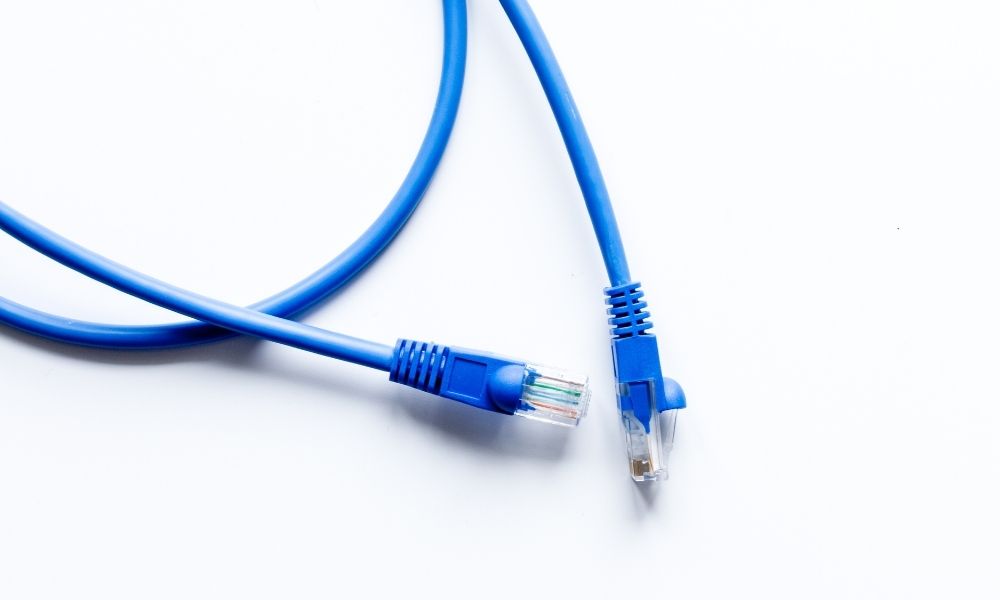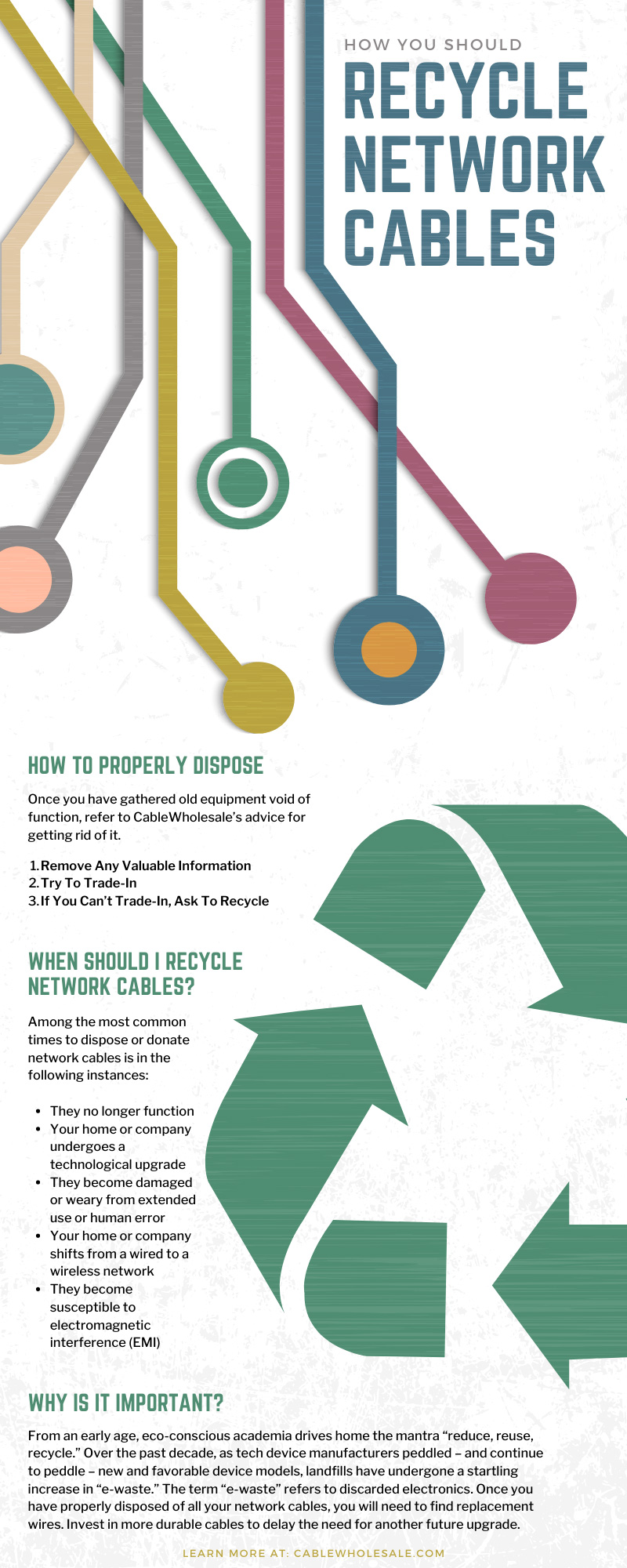
Nearly all offices and homes host several tech devices. That equipment requires cables for charging, data transmission, and other tasks. As gadgets become aged, their performance is bound to falter. When it comes time to replace your widgets, you may be wondering where the old ones should go. CableWholesale breaks down how you should recycle network cables for the people and businesses that prioritize sustainability.
How Can I Get Rid of Network Cables Sustainably?
Many businesses have established sustainable initiatives to reduce their carbon footprint. As technology upgrades become more and more available, it is crucial to remember how ridding our old accessories can harm the earth if done improperly.
What Not To Do
As you come across device duds, your knee-jerk reaction may be to toss them in the trash. This can be dangerous because many electronics contain hazardous chemicals that could find their way into landfills and water sources.
Unfortunately, getting rid of these materials isn’t as simple as opting for the blue bin, either. Most local recycling programs do not accept technology discards, as they do not have the resources to break them down safely.
How To Properly Dispose
It is as important to remain aware of what not to do as it is to stay informed in the best ways to approach disposal. Once you have gathered old equipment void of function, refer to CableWholesale’s advice for getting rid of it.
Remove Any Valuable Information
If you are looking to dispose of more than just cables, consider removing valuable information first. Before disposing of your devices, be sure they no longer contain any sensitive information.
Whether you donate or trash your old equipment, you should decrease any cybersecurity risks by wiping them clean of data. Secure cloud storage, a durable USB, or apps like Google Drive are all reliable sources to store important files and photos.
Try To Trade-In
You may be able to score some store credit with a trade-in. Assemble your old wires and haul them to any local electronic store.
Most places are willing to compromise an amount of store credit in exchange for your supply of old equipment. Even with their age, old materials contain valuable materials in their interior that can be repurposed by the appropriate stores.
If You Can’t Trade-In, Ask To Recycle
If the electronic store of your choice cannot accept your electronics as a trade-in deal, ask if they have a recycling program. Often, these stores offer their services to recycle old products for the community.
Stores that accept these gizmos usually have larger facilities to disassemble and repurpose them safely. Some places may require a deposit or small fee to take care of the brought in items.
When Should I Recycle Network Cables?
Among the most common times to dispose or donate network cables is in the following instances:
- They no longer function
- Your home or company undergoes a technological upgrade
- They become damaged or weary from extended use or human error
- Your home or company shifts from a wired to a wireless network
- They become susceptible to electromagnetic interference (EMI)
Your household or business can avoid accumulating a hefty number of useless materials by properly donating or disposing of them as they stop serving you. Using the tips to recycling mentioned in the previous section will be significant to your sustainable journey.
Why Is It Important?
Now that you understand how you should recycle network cables, perhaps you are asking why it matters.
From an early age, eco-conscious academia drives home the mantra “reduce, reuse, recycle.” While you may have found effortless ways to reduce your carbon footprint, you may struggle to adopt the phrase amid the increased use of electronics.
How do we know that folks struggle to recycle technology? Over the past decade, as tech device manufacturers peddled – and continue to peddle – new and favorable device models, landfills have undergone a startling increase in “e-waste.”
What Is E-Waste?
The term “e-waste” refers to discarded electronics. E-waste is also used to describe materials destined for refurbishment or recycling. Though innovations are convenient to work and home life, they have led to a spike in improper disposal over time.
Adequate discarding did not start until the mid-1970s. The U.S. established the Resource Conservation and Recovery Act (RCRA) in 1976, which made it illegal to dump electronic waste. This act was encouraged by the fact that many digital products contained hazardous materials at the time.
How Can I Minimize My Contributions To E-Waste?
As mentioned, there are several ways to implement sustainability into your habits. CableWholesale applies the three eco-friendly Rs to the e-waste equation.
Reduce: Minimize your tech device intake. Adequate research on necessary digital gadgets and their maintenance will be significant to their lifespan in your home or office. Thoughtful procurement benefits the earth and your bank account.
Reuse: Working devices should not go to waste. Find local charities or educational facilities that accept gently used technology. Help someone in your community safely and efficiently work or learn from home by donating your functioning tech materials, even cables.
Recycle: Finally, recycle the products that no longer work and are beyond repair with the advice we stated earlier.
What Now?
Once you have properly disposed of all your network cables, you will need to find replacement wires. Invest in more durable cables to delay the need for another future upgrade.
Cable manufacturers are constantly making improvements to their products. Be sure to do your research beforehand to ensure your new equipment is compatible with your home or company’s existing devices. For your company’s wired network setup, remember that some network topologies perform better with certain cable types over others.
At CableWholesale, we have a voluminous inventory of high-grade digital device accessories. With 75-ft HDMI cables, fiber optics, coaxial cables, and more equipping our catalog, you are sure to find the optimal substitute for your aged cable system.
We have continued to refine our products over the past 16 years of business, offering a comforting lifetime warranty on most items. Get in touch with one of our tech-savvy representatives today to learn how you can effectively rebuild your network system.




